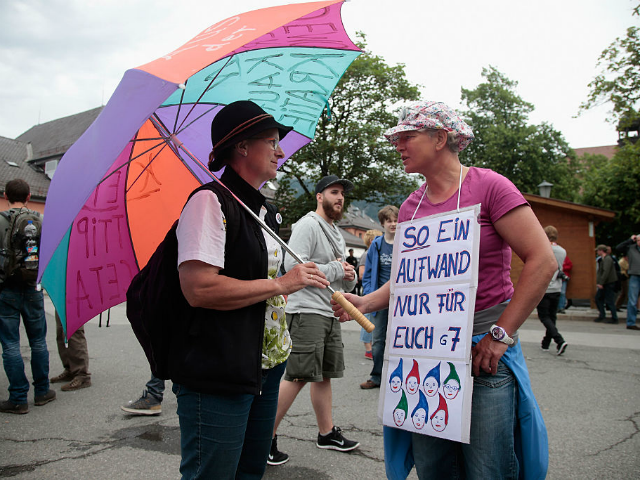“Social justice” is significantly more important to Germans than individual freedom, according to a new study by Ipsos.
After polling nearly 21,000 people across 28 countries, the global market and opinion research company found that just 38 per cent of Germans prioritised so-called social justice over individual freedom.
Only in China (37 per cent) and France (36 per cent) did fewer people agree with the statement “individual freedom is more important than social justice” when responding to the survey, which Ipsos carried out to mark the 200th birthday of the Communist Manifesto author Karl Marx on May 5.
“Our data shows that there is a great yearning for more social justice in Germany,” said Robert Grimm, the pollster’s director of political and social research.
“There is a great deal of criticism directed at excesses of the neoliberal market economy,” he told newspaper Die Welt.
The survey also found Germans were reluctant to agree with the assertion that the free market produces “the best in man”, with just under half (49 per cent) endorsing this view.
Only in France were people less likely to agree with the statement (43 per cent) than in Germany, while the free market enjoyed the highest levels of confidence in India (86 per cent), Malaysia (84 per cent), and China (81 per cent).
Britain ranked just two places higher than Germany, with Saudi Arabia in between, for placing individual freedom above so-called social justice — with this position backed by less than half (47 per cent) of UK respondents, according to the research.
While the majority of Brits (62 per cent) said that market economics is the best system for mankind as opposed to socialism, the figure was below the global average (66 per cent), and put the country behind Turkey (65 per cent).
What Ipsos found particularly striking in the results, according to Die Welt, was German resistance to the idea that outstanding talent or performance at work should be rewarded.
Grimm said while it is seen as normal in countries like the U.S. (73 per cent), China (81 per cent), and Russia (82 per cent) for exemplary job performance to attract a higher salary, large wage differences “were viewed in Germany to be inappropriate”.
Just under half of respondents worldwide (48 per cent) said they believe socialism to be a system of oppression, surveillance, and state terror, with Germany ranking middle-of-the-table (49 per cent) for this view.
Conversely, half of Germans polled said that socialist ”values” are important for making “progress” on social goals — a view which attracted the least enthusiasm in Japan, where only 21 backed the statement.

COMMENTS
Please let us know if you're having issues with commenting.